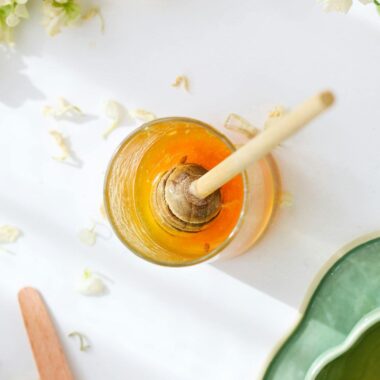The invaluable social insects, honey bees, are forever playing a significant role in providing food security, cultivating vegetative biodiversity, and increasing agricultural productivity.
The buzz of the bees is extremely vital for our ecosystem, as it helps in promoting diverse landscapes and pollinating crops. Bees are like ultimate foodies, extremely industrious, and are pollinating over 75% of the world’s flowering plants.
However, the population of bees is declining due to a myriad of factors like deforestation, climate change, biological hazards, environmental pollutants, pesticides, etc., in Pakistan. All of these issues are interrelated, and this is how we can save these pollinators from extinction.
Why Bees are Worth Buzzing: Their Significance
Bees are the perfect and top pollinators since evolution, and they have been sweetening our lives since then. Besides collecting nectar to make honey, nature’s hardest workers provide one-third of the food we eat to make our plates colorful.
Bees perform around 80% of the pollination on our planet. Pakistan has sixty-one honeybee pollination-dependent food crops, including twenty-six different fruits, nineteen vegetables, four leguminous grains, seven oilseeds, three nut shrubs, and two flavoring crops.
Moreover, besides pollinating different foods, honey extracted from bees is also useful for making medicinal and nutritional products.
In short, honeybees play a crucial role in vegetative biodiversity and the agro-economy of Pakistan. However, pollution and climate change are threatening the beekeeping industry.
The Declination in Honey Production
The Pakistan possesses the most fertile land, and the best agricultural province is Punjab. This province has the most amount of fertile land for food production. Plus, the beekeepers in Pakistan used to have diverse foliage offering rich nectar.
Now, intense air pollution and climate changes like diminished rainfall, smog, and fog have made it harder for the buzzing bees to locate flowers. Besides that, high temperatures, heavy rainfall, landslides, floods, hailstorms, and extreme winter temperatures are also destroying flowers and the flowering season.
Besides the global change of weather patterns, other factors like intensive farming practices, use of pesticides, deforestation, habitat loss, use of agrochemicals, and pollutants are all posing threats to honeybees’ health.
In addition, honeybees have colonies, and most of these colonies are made of female bees. Pakistan has four honeybee species, i.e., rock honeybee, dwarf honeybee, Asian hive honeybee, and Western honeybee. These species of bees are also declining in Pakistan because of bee hunting, complete nest removal, and hive destruction.
So Now the Question is How to Save these Pollinators?
You are aware of the significance of honeybees in Pakistan’s agro-economy. Therefore, it is important to preserve and support bee habitats. Preserving safe spaces and pollinator gardens will help bees feed and nest.
Moreover, grow bee-friendly food sources that are rich in nectar and pollen. Plus, plant more trees as they improve air quality, reduce surface heat, and store carbon. Resin and tree leaves offer nesting material, and wood cavities make great shelters for bees.
Furthermore, it is essential to create awareness and share knowledge and tools to address honeybee health challenges. Potential hazards should also be articulated that pose risks to these insects.
If you are a naturalist, collaborate with other naturalists in different community science projects to gain essential insights and local knowledge.
Bee the Change: Ending Note
Every small action can help save our favorite pollinators. Take action by advocating for bee-friendly policies, sharing their importance, and promoting bee conservation and environmental measures to save their health.
Bring the change by communicating these pointers to policymakers and Government bodies so they can implement regulations and take necessary actions to protect bees’ health. Other than these actions, support Pakistani beekeepers by purchasing their honey to support their sustainable beekeeping practices.

